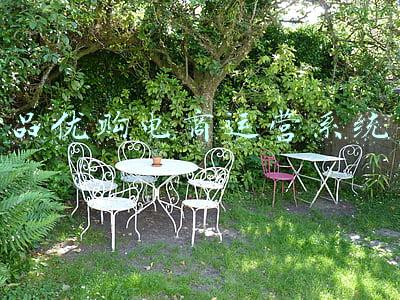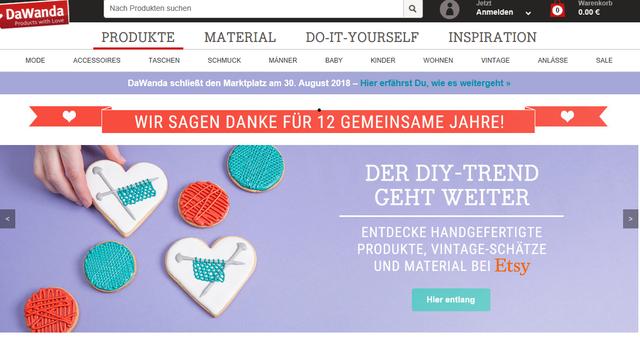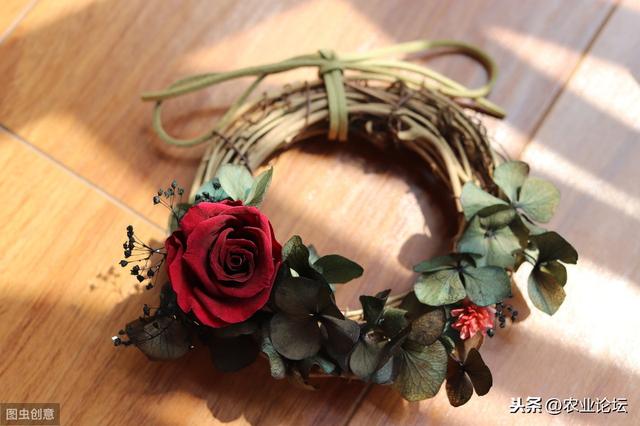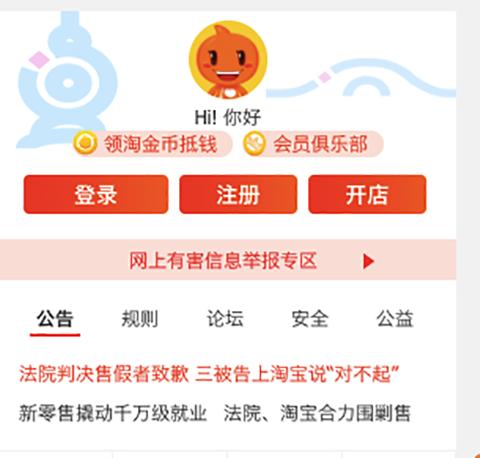课程目标
目标1:理解和运用angularJS的service
目标2:理解和运用控制器继承
目标3:掌握代码生成器的使用
目标4:实现规格管理
目标5:实现模板管理
1.前端分层开发1.1 需求分析
我们在上次课学习了angularJS并完成的品牌管理的增删改查功能。但是我们看代码,JS和html都放在一起,并不利于我们后期的维护。我们可以在前端代码中也运用MVC的设计模式,将代码进行分离,提高程序的可维护性。
1.2 自定义服务
在 AngularJS 中,服务是一个函数或对象,可在你的 AngularJS 应用中使用。我们在上次课中使用了内置服务$http .其实我们也可以自己来定义服务,而服务会封装一些操作。我们在不同的控制器中可以调用同一个服务,这样服务的代码将会被重用。
我们现在就修改一下我们的品牌管理代码,使用自定义服务。
var app=angular.module('pinyougou', ['pagination']);//定义模块 //品牌服务层 app.service('brandService',function($http){ //读取列表数据绑定到表单中 this.findAll=function(){ return $http.get('../brand/findAll.do'); } //其它方法省略....... }); //品牌控制层 app.controller('brandController' ,function($scope,brandService){ //读取列表数据绑定到表单中 $scope.findAll=function(){ brandService.findAll().success( function(response){ $scope.list=response; } ); } //其它方法省略........ });
1.3代码分离
我们刚才已经将与后端交互的部分放入自定义服务,目的是不同的控制层都可以重复调用服务层方法。所以我们还需要将代码分离出来,以便调用。
1.3.1 前端基础层
在pinyougou-manager-web工程js下创建base.js
var app=angular.module('pinyougou',[]);
创建base_pagination.js
var app=angular.module('pinyougou',['pagination']);
一个用于不需要分页功能的页面,一个用于需要分页功能的页面.
1.3.2 前端服务层
在pinyougou-manager-web工程js下创建service文件夹。创建brandService.js
//品牌服务层 app.service('brandService',function($http){ //读取列表数据绑定到表单中 this.findAll=function(){ return $http.get('../brand/findAll.do'); } //其它方法省略........ });
1.3.3 前端控制层
在pinyougou-manager-web的js文件夹下创建brandController.js
//品牌控制层 app.controller('brandController' ,function($scope,brandService){ //读取列表数据绑定到表单中 $scope.findAll=function(){ brandService.findAll().success( function(response){ $scope.list=response; } ); } //其它方法省略........ });
1.3.4 修改页面
去掉brand.html原来的JS代码,引入刚才我们建立的JS
<script type="text/javascript" src="../js/base_pagination.js"> </script> <script type="text/javascript" src="../js/service/brandService.js"> </script> <script type="text/javascript" src="../js/controller/brandController.js"> </script> 2.控制器继承
2.1需求分析
有些功能是每个页面都有可能用到的,比如分页,复选等等,如果我们再开发另一个功能,还需要重复编写。怎么能让这些通用的功能只写一次呢?我们通过继承的方式来实现。
2.2前端代码
2.2.1 建立父控制器
在pinyougou-manager-web的js/controller目录下建立baseController.js
//基本控制层 app.controller('baseController' ,function($scope){ //重新加载列表 数据 $scope.reloadList=function(){ //切换页码 $scope.search( $scope.paginationConf.currentPage, $scope.paginationConf.itemsPerPage); } //分页控件配置 $scope.paginationConf = { currentPage: 1, totalItems: 10, itemsPerPage: 10, perPageOptions: [10, 20, 30, 40, 50], onChange: function(){ $scope.reloadList();//重新加载 } }; $scope.selectIds=[];//选中的ID集合 //更新复选 $scope.updateSelection = function($event, id) { if($event.target.checked){//如果是被选中,则增加到数组 $scope.selectIds.push( id); }else{ var idx = $scope.selectIds.indexOf(id); $scope.selectIds.splice(idx, 1);//删除 } } });
2.2.2 修改品牌控制器层
修改brandController.js
//品牌控制层 app.controller('brandController' ,function($scope,$controller,brandService){ $controller('baseController',{$scope:$scope});//继承 //读取列表数据绑定到表单中 $scope.findAll=function(){ brandService.findAll().success( function(response){ $scope.list=response; } ); } //其它方法省略........ });
controller也是angular提供的一个服务,可以实现伪继承,实际上就是与BaseController共享
controller也是angular提供的一个服务,可以实现伪继承,实际上就是与BaseController共享scope
3.代码生成器3.1代码生成
我们接下来使用《黑马程序员代码生成器2.4》来完成代码的编写。生成后将代码拷贝到工程中。具体步骤如下:
(1)资源中HeimaCodeUtil_V2.4 就是代码生成器,将其拷贝到不包含中文和空格的目录下
(2)运行heima_code_util.exe 即可看到数据库连接窗口
(3)选择数据库类型为 MYSQL ,输入用户名和密码后点击“测试连接”按钮,提示连接成功后选择数据库,点击“下一步”。
(4)选择模板为SSM+dubbox+angularJS(服务层+WEB层)
这个模板不会生成数据访问层和实体类,因为我们之前已经用逆向工程完成了数据访问层与实体类的生成。
(5)点击生成代码按钮,提示成功后,到生成路径去找生成的代码,并拷贝到我们的工程中。
3.2代码拷贝
将商家商品相关代码拷贝到工程。
(1)拷贝服务接口
(2)拷贝服务实现类
(3)拷贝控制器
(4)拷贝JS
3.3安装到本地仓库
执行maven命令install ,将最新的品优购代码安装到本地仓库
4.规格管理4.1需求及表结构分析
4.1.1 需求
实现规格管理功能

4.1.2 表结构
tb_specification 规格表
字段类型长度含义IdBigint主键Spec_nameVarchar255规格名称
tb_specification_option 规格选项表
字段类型长度含义IdBigint主键Option_nameVarchar200规格选项名称Spec_idBigint30规格IDOrdersInt11排序
4.2规格列表
4.2.1 引入JS
修改pinyougou-manager-web工程的specification.html
<script type="text/javascript" src="../plugins/angularjs/angular.min.js"> </script> <script src="../plugins/angularjs/pagination.js"></script> <link rel="stylesheet" href="../plugins/angularjs/pagination.css"> <script type="text/javascript" src="../js/base_pagination.js"> </script> <script type="text/javascript" src="../js/service/specificationService.js"> </script> <script type="text/javascript" src="../js/controller/baseController.js"></script> <script type="text/javascript" src="../js/controller/specificationController.js"> </script>
4.2.2 放置分页组件
<!-- 分页 --> <tm-pagination conf="paginationConf"></tm-pagination>
4.2.3 指令与表达式
在body元素指定模块名和控制器名
<body class="hold-transition skin-red sidebar-mini" ng-app="pinyougou" ng-controller="specificationController" >
循环表格行
<tr ng-repeat="entity in list"> <td><input type="checkbox" ></td> <td>{{entity.id}}</td> <td>{{entity.specName}}</td> <td class="text-center"> <button type="button" class="btn bg-olive btn-xs" data-toggle="modal" data-target="#editModal">修改</button> </td> </tr>
4.3新增规格
4.3.1 新增行的实现
修改specificationController.js 新增以下代码
//新增选项行 $scope.addTableRow=function(){ $scope.entity.specificationOptionList.push({}); }
specification.html “新建选项”按钮
<button type="button" class="btn btn-default" title="新建" ng-click="addTableRow()"><i class="fa fa-file-o"></i> 新建</button>
循环列表行,绑定表格内的编辑框
<tr ng-repeat="pojo in entity.specificationOptionList"> <td><input type="checkbox"></td> <td> <input ng-model="pojo.optionName" class="form-control" placeholder="规格选项"> </td> <td> <input ng-model="pojo.orders" class="form-control" placeholder="排序"> </td> </tr>
注意:要修改specification.html “新建”按钮,弹出窗口时对entity进行初始化,否则向集合添加数据时会报错!
<button type="button" class="btn btn-default" title="新建" data-toggle="modal" data-target="#editModal" ng-click="entity={'specificationOptionList':[]}"><i class="fa fa-file-o"></i> 新建</button>
4.3.2 删除行的实现
实现思路:在每一行将索引值传递给集合,在集合中删除。
修改specificationController.js 新增以下代码
//批量选项删除 $scope.deleTableRow=function(index){ $scope.entity.specificationOptionList.splice(index,1);//删除 }
修改每行的删除按钮
<button type="button" class="btn btn-default" title="删除" ng-click="deleTablenRow($index)"><i class="fa fa-file-o"></i> 删除</button>
$index 用于获取ng-repeat指令循环中的索引。
4.3.3 提交保存
实现思路:我们将规格和规格选项数据合并成一个对象来传递,这时我们需要用一个对象将这两个对象组合起来。在业务逻辑中,得到组合对象中的规格和规格选项列表,插入规格返回规格ID,然后循环插入规格选项。
(1)我们要增加规格选项,必须要知道新增规格的ID, 所以我们在修改pinyougou-dao 的TbSpecificationMapper.xml ,在insert节点后添加如下配置
<insert id="insert" parameterType="com.pinyougou.pojo.TbSpecification" > <selectKey resultType="java.lang.Long" order="AFTER" keyProperty="id"> SELECT LAST_INSERT_ID() AS id </selectKey> insert into tb_specification (id, spec_name) values (#{id,jdbcType=BIGINT}, #{specName,jdbcType=VARCHAR}) </insert>
(2)在pinyougou-pojo 建立com.pinyougou.pojogroup包,包下建立Specification类
package com.pinyougou.pojogroup; import java.io.Serializable; import java.util.List; import com.pinyougou.pojo.TbSpecification; import com.pinyougou.pojo.TbSpecificationOption; /** * 规格组合实体类 * @author Administrator * */ public class Specification implements Serializable { private TbSpecification specification; private List<TbSpecificationOption> specificationOptionList; public TbSpecification getSpecification() { return specification; } public void setSpecification(TbSpecification specification) { this.specification = specification; } public List<TbSpecificationOption> getSpecificationOptionList() { return specificationOptionList; } public void setSpecificationOptionList(List<TbSpecificationOption> specificationOptionList) { this.specificationOptionList = specificationOptionList; } }
(3)修改pinyougou-sellergoods-interface的SpecificationService.java
/** * 增加 */ public void add(Specification specification);
(4)修改pinyougou-sellergoods-service的SpecificationServiceImpl.java
/** * 增加 */ @Override public void add(Specification specification) { specificationMapper.insert(specification.getSpecification());//插入规格 //循环插入规格选项 for(TbSpecificationOption specificationOption:specification.getSpecificationOptionList()){ specificationOption.setSpecId(specification.getSpecification().getId());//设置规格ID specificationOptionMapper.insert(specificationOption); } }
修改pinyougou-manager-web的SpecificationController.java
/** * 增加 * @param specification * @return */ @RequestMapping("/add") public Result add(@RequestBody Specification specification){ try { specificationService.add(specification); return new Result(true, "增加成功"); } catch (Exception e) { e.printStackTrace(); return new Result(false, "增加失败"); } }
(6)修改页面specification.html
绑定规格名称
<table class="table table-bordered table-striped" width="800px"> <tr> <td>规格名称</td> <td> <input ng-model="entity.specification.specName" class="form-control" placeholder="规格名称" > </td> </tr> </table>
绑定保存按钮事件
<button class="btn btn-success" data-dismiss="modal" aria-hidden="true" ng-click="save()">保存</button>
4.4修改规格
4.4.1 获取规格数据
实现思路:通过规格ID,到后端查询规格和规格选项列表,然后通过组合实体类返回结果
(1)修改pinyougou-sellergoods-interface的SpecificationService.java
/** * 根据ID获取实体 * @param id * @return */ public Specification findOne(Long id);
(2)修改pinyougou-sellergoods-service的SpecificationServiceImpl.java
/** * 根据ID获取实体 * @param id * @return */ @Override public Specification findOne(Long id){ //查询规格 TbSpecification tbSpecification = specificationMapper.selectByPrimaryKey(id); //查询规格选项列表 TbSpecificationOptionExample example=new TbSpecificationOptionExample(); Criteria criteria = example.createCriteria(); criteria.andSpecIdEqualTo(id);//根据规格ID查询 List<TbSpecificationOption> optionList = specificationOptionMapper.selectByExample(example); //构建组合实体类返回结果 Specification spec=new Specification(); spec.setSpecification(tbSpecification); spec.setSpecificationOptionList(optionList); return spec; }
(3)修改pinyougou-manager-web的SpecificationController.java
@RequestMapping("/findOne") public Specification findOne(Long id){ return specificationService.findOne(id); }
(4)修改页面specification.html 中列表的修改按钮
<button type="button" class="btn bg-olive btn-xs" data-toggle="modal" data-target="#editModal" ng-click="findOne(entity.id)">修改</button>
4.4.2 保存修改结果
(1)修改pinyougou-sellergoods-interface的SpecificationService.java
/** * 修改 */ public void update(Specification specification);
(2)修改pinyougou-sellergoods-service的SpecificationServiceImpl.java
/** * 修改 */ @Override public void update(Specification specification){ //保存修改的规格 specificationMapper.updateByPrimaryKey(specification.getSpecification());//保存规格 //删除原有的规格选项 TbSpecificationOptionExample example=new TbSpecificationOptionExample(); com.pinyougou.pojo.TbSpecificationOptionExample.Criteria criteria = example.createCriteria(); criteria.andSpecIdEqualTo(specification.getSpecification().getId());//指定规格ID为条件 specificationOptionMapper.deleteByExample(example);//删除 //循环插入规格选项 for(TbSpecificationOption specificationOption:specification.getSpecificationOptionList()){ specificationOption.setSpecId(specification.getSpecification().getId()); specificationOptionMapper.insert(specificationOption); } }
(3)修改pinyougou-manager-web的SpecificationController.java
/** * 修改 * @param specification * @return */ @RequestMapping("/update") public Result update(@RequestBody Specification specification){ try { specificationService.update(specification); return new Result(true, "修改成功"); } catch (Exception e) { e.printStackTrace(); return new Result(false, "修改失败"); } }
(4)修改specification.js的save方法
//保存 $scope.save=function(){ var serviceObject;//服务层对象 if($scope.entity.specification.id!=null){//如果有ID serviceObject=specificationService.update( $scope.entity ); //修改 }else{ serviceObject=specificationService.add( $scope.entity );//增加 } serviceObject.success( function(response){ if(response.success){ //重新查询 $scope.reloadList();//重新加载 }else{ alert(response.message); } } ); }
4.5删除规格
实现思路:我们要删除规格的同时,还要记得将关联的规格选项删除掉。
4.5.1 后端代码
修改pinyougou-sellergoods-service的SpecificationServiceImpl.java
/** * 批量删除 */ @Override public void delete(Long[] ids) { for(Long id:ids){ specificationMapper.deleteByPrimaryKey(id); //删除原有的规格选项 TbSpecificationOptionExample example=new TbSpecificationOptionExample(); com.pinyougou.pojo.TbSpecificationOptionExample.Criteria criteria = example.createCriteria(); criteria.andSpecIdEqualTo(id);//指定规格ID为条件 specificationOptionMapper.deleteByExample(example);//删除 } }
4.5.2 前端代码
修改pinyougou-manager-web的specification.html
列表的复选框
<input type="checkbox" ng-click="updateSelection($event,entity.id)">
删除按钮
<button type="button" class="btn btn-default" title="删除" ng-click="dele()" ><i class="fa fa-trash-o"></i> 删除</button> 5.模板管理
5.1 需求及表结构分析
5.1.1 需求分析
首选我们需要理解模板的作用。模板主要有两个:
1是用于关联品牌与规格
2定义扩充属性
5.1.2 表结构分析
tb_type_template 模板表
字段类型长度含义IdBigint主键nameVarchar80模板名称Spec_idsVarchar1000关联规格(json格式)brand_idsVarchar1000关联品牌(json格式)custom_attribute_itemsVarchar2000扩展属性
5.2 模板列表
5.2.1 引入JS
修改type_template.html ,引入JS
<script type="text/javascript" src="../plugins/angularjs/angular.min.js"> </script> <script src="../plugins/angularjs/pagination.js"></script> <link rel="stylesheet" href="../plugins/angularjs/pagination.css"> <script type="text/javascript" src="../js/base_pagination.js"> </script> <script type="text/javascript" src="../js/service/typeTemplateService.js"> </script> <script type="text/javascript" src="../js/controller/baseController.js"> </script> <script type="text/javascript" src="../js/controller/typeTemplateController.js"> </script>
5.2.2 放置分页组件
<tm-pagination conf="paginationConf"></tm-pagination>
5.2.3 指令与表达式
<body class="hold-transition skin-red sidebar-mini" ng-app="pinyougou" ng-controller="typeTemplateController" >
<tr ng-repeat="entity in list"> <td><input type="checkbox"></td> <td>{{entity.id}}</td> <td>{{entity.name}}</td> <td>{{entity.brandIds}}</td> <td>{{entity.specIds}}</td> <td>{{entity.customAttributeItems}}</td> <td class="text-center"> <button type="button" class="btn bg-olive btn-xs" data-toggle="modal" data-target="#editModal" >修改</button> </td> </tr>
5.3 品牌下拉列表
在弹出窗口中有个品牌下拉列表,要求品牌是可以选择多个,这与我们之前的单选的下拉列表是不同的。我们要想实现这个功能,需要使用select2 组件来完成。
5.2.1 认识select2
我们来看例子:我们需要的就是这样可以多选的下拉框
5.2.1 认识select2
我们来看例子:我们需要的就是这样可以多选的下拉框
<link rel="stylesheet" href="../plugins/select2/select2.css" /> <link rel="stylesheet" href="../plugins/select2/select2-bootstrap.css" /> <script src="../plugins/select2/select2.min.js" type="text/javascript"></script> <script type="text/javascript" src="../js/angular-select2.js"> </script>
(2)修改typeTemplateController.js ,定义品牌列表数据
$scope.brandList={data:[{id:1,text:'联想'},{id:2,text:'华为'},{id:3,text:'小米'}]};//品牌列表
(3)在type_template.html 用select2组件实现多选下拉框’
<input select2 select2-model="entity.brandIds" config="brandList" multiple placeholder="选择品牌(可多选)" class="form-control" type="text"/>
multiple 表示可多选
Config用于配置数据来源
select2-model用于指定用户选择后提交的变量
最终实现效果如下:
5.2.3 后端数据支撑
我们现在让这个下拉列表的数据从数据库中提取,修改后端代码
(1)pinyougou-dao 工程 ,在TbBrandMapper.xml中添加SQL语句配置
<select id="selectOptionList" resultType="java.util.Map" > select id,name as text from tb_brand </select>
(2)在pinyougou-dao 的TbBrandMapper中添加方法定义
List<Map> selectOptionList();
(3)修改pinyougou-sellergoods-interface 的BrandService.java,增加方法定义
/** * 品牌下拉框数据 */ List<Map> selectOptionList();
(4)修改pinyougou-sellergoods-service的BrandServiceImpl.java,增加方法
/** * 列表数据 */ public List<Map> selectOptionList() { return brandMapper.selectOptionList(); }
(5)修改pinyougou-manager-web的BrandController.java
@RequestMapping("/selectOptionList") public List<Map> selectOptionList(){ return brandService.selectOptionList(); }
(6)修改pinyougou-manager-web的brandService.js
//下拉列表数据 this.selectOptionList=function(){ return $http.get('../brand/selectOptionList.do'); }
(7)修改pinyougou-manager-web的typeTemplateController.js
因为我们在模板控制层中需要使用品牌服务层的方法,所以需要添加依赖注入
//控制层 app.controller('typeTemplateController' ,function($scope,$controller ,typeTemplateService ,brandService){
使用品牌服务方法实现查询,结果赋给变量
$scope.brandList={data:[]};//品牌列表 //读取品牌列表 $scope.findBrandList=function(){ brandService.selectOptionList().success( function(response){ $scope.brandList={data:response}; } ); }
(8)修改type_template.html ,添加JS引入
<script type="text/javascript" src="../js/base_pagination.js"> </script> <script type="text/javascript" src="../js/service/typeTemplateService.js"> </script> <script type="text/javascript" src="../js/service/brandService.js"> </script> <script type="text/javascript" src="../js/controller/baseController.js"> </script> <script type="text/javascript" src="../js/controller/typeTemplateController.js"> </script>
特别注意一下,JS引入的位置,要在typeTemplateController.js之前,因为该控制器要使用到它
(9)修改type_template.html ,添加初始化
<body class="hold-transition skin-red sidebar-mini" ng-app="pinyougou" ng-controller="typeTemplateController" ng-init="findBrandList()">
5.4 规格下拉列表
(代码略,参照品牌下拉列表的实现步骤 )
5.5 扩展属性
5.5.1 增加行
在typeTemplateController.js中新增代码
//新增扩展属性行 $scope.addTableRow=function(){ $scope.entity.customAttributeItems.push({}); }
在type_template.html中的“新建”按钮,执行实体的初始化操作
button type="button" class="btn btn-default" title="新建" data-toggle="modal" data-target="#editModal" ng-click="entity={customAttributeItems:[]}"><i class="fa fa-file-o"></i> 新建</button>
修改“新增扩展属性按钮”
<button type="button" class="btn btn-default" title="新增扩展属性" ng-click="addTableRow()"><i class="fa fa-file-o"></i> 新增扩展属性</button>
循环表格
<tr ng-repeat="pojo in entity.customAttributeItems"> <td><input class="form-control" ng-model="pojo.text" placeholder="属性名称" ></td> <td><button type="button" class="btn btn-default" title="删除"><i class="fa fa-trash-o"></i> 删除</button> </td> </tr>
5.5.2 删除行
实现思路:在每一行将索引值传递给集合,在集合中删除。
修改typeTemplateController.js新增以下代码
//删除扩展属性行 $scope.deleTableRow=function(index){ $scope.entity.customAttributeItems.splice(index,1);//删除 }
修改每行的删除按钮
<button type="button" ng-click="deleTableRow($index)" class="btn btn-default" title="删除"><i class="fa fa-trash-o"></i> 删除</button>
$index 用于获取ng-repeat指令循环中的索引。
5.6 新增模板
修改type_template.html ,绑定文本框
<tr> <td>模板名称</td> <td><input ng-model="entity.name" class="form-control" placeholder="模板名称"> </td> </tr>
保存按钮
<button class="btn btn-success" data-dismiss="modal" aria-hidden="true" ng-click="save()">保存</button>
5.7 修改模板
修改typeTemplateController.js的findOne方法
//查询实体 $scope.findOne=function(id){ typeTemplateService.findOne(id).success( function(response){ $scope.entity= response; $scope.entity.brandIds= JSON.parse($scope.entity.brandIds);//转换品牌列表 $scope.entity.specIds= JSON.parse($scope.entity.specIds);//转换规格列表 $scope.entity.customAttributeItems= JSON.parse($scope.entity.customAttributeItems);//转换扩展属性 } ); }
从数据库中查询出来的是字符串,我们必须将其转换为json对象才能实现信息的回显。
5.8 删除模板
修改type_template.html
表格中的复选框
<input type="checkbox" ng-click="updateSelection($event,entity.id)">
删除按钮
<button type="button" class="btn btn-default" title="删除" ng-click="dele()"> <i class="fa fa-trash-o"></i> 删除</button>
5.9 优化模板列表的显示
我们现在完成的列表中都是以JSON格式显示的,不利于用户的查询。
我们需要将信息以更友好的方式展现出来,如下图形式
我们需要将一个json字符串中某个属性的值提取出来,用逗号拼接成一个新的字符串。这样的功能比较常用,所以我们将方法写到baseController.js
//提取json字符串数据中某个属性,返回拼接字符串 逗号分隔 $scope.jsonToString=function(jsonString,key){ var json=JSON.parse(jsonString);//将json字符串转换为json对象 var value=""; for(var i=0;i<json.length;i++){ if(i>0){ value+="," } value+=json[i][key]; } return value; }
页面上使用该函数进行转换
<tr ng-repeat="entity in list"> <td><input type="checkbox" ng-click="updateSelection($event,entity.id)"></td> <td>{{entity.id}}</td> <td>{{entity.name}}</td> <td>{{jsonToString(entity.brandIds,'text')}}</td> <td>{{jsonToString(entity.specIds,'text')}}</td> <td>{{jsonToString(entity.customAttributeItems,'text')}}</td> <td class="text-center"> <button type="button" class="btn bg-olive btn-xs" data-toggle="modal" data-target="#editModal" ng-click="findOne(entity.id)">修改</button> </td> </tr>








